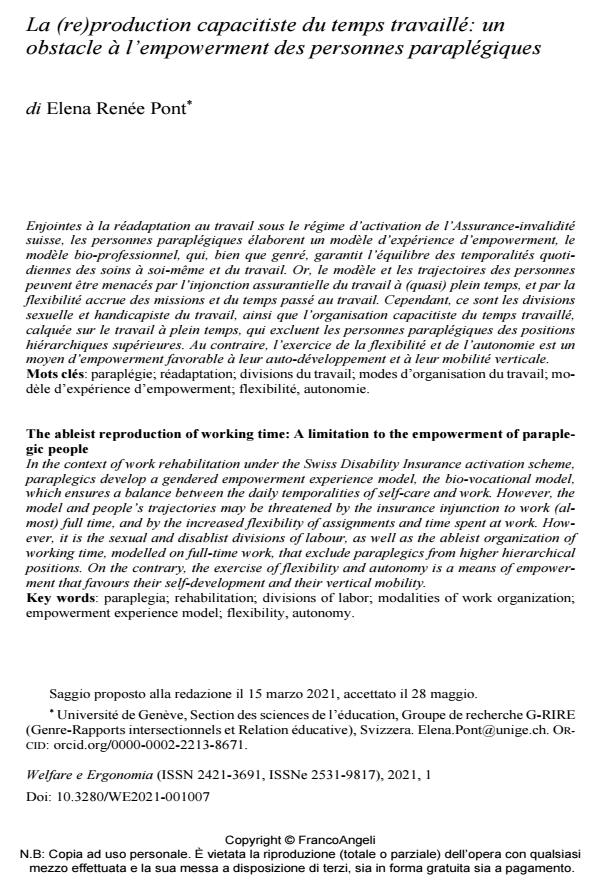The ableist reproduction of working time: A limitation to the empowerment of paraplegic people
Journal title WELFARE E ERGONOMIA
Author/s Elena Renée Pont
Publishing Year 2021 Issue 2021/1
Language French Pages 14 P. 63-76 File size 298 KB
DOI 10.3280/WE2021-001007
DOI is like a bar code for intellectual property: to have more infomation
click here
Below, you can see the article first page
If you want to buy this article in PDF format, you can do it, following the instructions to buy download credits

FrancoAngeli is member of Publishers International Linking Association, Inc (PILA), a not-for-profit association which run the CrossRef service enabling links to and from online scholarly content.
In the context of work rehabilitation under the Swiss Disability Insurance activation scheme, paraplegics develop a gendered empowerment experience model, the bio-vocational model, which ensures a balance between the daily temporalities of self-care and work. However, the model and people’s trajectories may be threatened by the insurance injunction to work (al-most) full time, and by the increased flexibility of assignments and time spent at work. Howev-er, it is the sexual and disablist divisions of labour, as well as the ableist organization of working time, modelled on full-time work, that exclude paraplegics from higher hierarchical positions. On the contrary, the exercise of flexibility and autonomy is a means of empower-ment that favours their self-development and their vertical mobility.
Keywords: paraplegia; rehabilitation; divisions of labor; modalities of work organization; empowerment experience model; flexibility, autonomy.
Elena Renée Pont, La (re)production capacitiste du temps travaillé: un obstacle à l’empowerment des personnes paraplégiques in "WELFARE E ERGONOMIA" 1/2021, pp 63-76, DOI: 10.3280/WE2021-001007